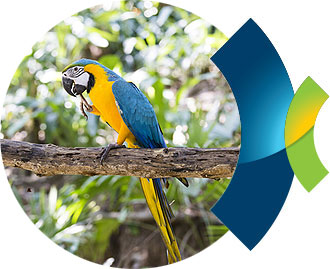Biodiversity
(GRI EN14)
Managing impact of our operations on the environment and biodiversity is a key issue for CTEEP. The Company's Engineering Department conducts environmental assessments for both new projects and projects needing refurbishment/improvements. These studies comprise a diagnostic survey of the area impacted by the project, an environmental impact assessment and proposed mitigation/compensation measures. In addition, the Company implements the respective mitigation/compensation Environmental Programs and is responsible for environmental management in all its projects. These assessments are more or less thorough depending on how complex and extensive the environmental impact caused by each project is, in compliance with the local, state and federal legislation.
Inspection and maintenance are routine activities at CTEEP to prevent incidents that may affect the business and the environment negatively.
Additionally, CTEEP undertakes awareness-raising and risk prevention initiatives geared to the communities in the vicinity of its facilities, such as the Amigos da Energia project and the Burn Prevention Campaign, as well as environmental education initiatives (Cuca Project) and environmental recovery initiatives (Pomar Urbano, or Urban Orchard).
CTEEP's R&D projects also propose solutions for further reduction of impacts on the environment and biodiversity. These are but some of the results of some of these projects: an improved method for discharging PCBs (polychlorinated biphenyls); prevention and minimization of SF6 leaks; and greater knowledge of load management in the electric system and the conditions needed to meet the demand for electricity, which may delay the need for reinforcement works or new transmission lines that would cause a direct environmental impact.
Protected and Recovered Areas
Part of the Company's transmission lines cross Conservation, Integral Protection Units and Sustainable Use Units. These areas total 548.22 hectares and cross the following conservation units: Itirapina Ecological Station; Pederneiras Experimental Station; Assis State Forest; Manduri State Forest; Horto Florestal de Palmital; Carlos Botelho State Park; Cantareira State Park; Serra do Mar State Park (in Caraguatatuba, Cubatão, Curucutu and São Sebastião); Juquery State Park; Casa Branca Experimental Station Reserve; and São Simão Reserve. (GRI EN11)
CTEEP has no thorough biodiversity survey of the areas affected by its transmission lines and compensation areas. However, it conducts studies about environmental compensation initiatives and results of mitigation/compensation measures whenever the environmental body requests it to do so, new projects are started and existing transmission lines are repowered or have their wires replaced. These studies may comprise reports prepared by the Company, including photographic surveys and partnerships with research institutes among others. CTEEP adds that it was required by no relevant public bodies to sign consent decrees to adapt to legal environmental requirements in 2013. (GRI EN13; EU13)

